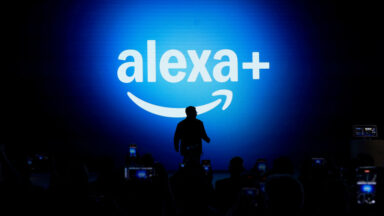
Week in Review: Meta reveals its Oakley smart glasses
Welcome to this week's roundup of significant tech developments! From major acquisitions to groundbreaking inventions, there's plenty to discuss. In an exciting collaboration, Meta has partnered with Oakley to introduce a new line of smart glasses. These innovative specs are capable of recording stunning 3K video, playing music, managing phone calls, and responding to prompts from Meta's AI. Priced starting at $399, they boast double the battery life of the existing Ray-Ban models. Additionally, a limited-edition Oakley Meta HSTN version will launch on July 11, retailing for $499. Meanwhile, Wix has made headlines by acquiring the budding no-code AI startup Base44 for $80 million just six months after its inception. The rapid success of Base44, which allows users to create web applications without coding, caught Wix's attention, leading to this strategic purchase. In a remarkable environmental initiative, Finland has unveiled the world’s largest sand battery. This innovative system, designed to store heat for the heating needs of Pornainen, is constructed from repurposed soapstone and can retain heat for weeks. This low-cost solution demonstrates that effective climate action doesn't always require high-tech alternatives. On the electric bike front, VanMoof has launched its latest model, the S6, marking its return from bankruptcy. This e-bike maintains the brand's distinctive design while incorporating advanced technology and a robust repair network to enhance user experience. In a bold venture, Baiju Bhatt, co-founder of Robinhood, is now venturing into space with his new startup, Aetherflux. With a $60 million investment, the company aims to develop technology for beaming solar power from space, with plans to launch a demonstration satellite next year, supported by the Department of Defense. However, not all news has been positive. SpaceX faced another setback as one of its Starship rockets exploded during testing in Texas. Although no injuries occurred, this incident could delay the vehicle's next launch, which was initially scheduled for June 29. In the streaming world, Spotify is hinting at the future release of its long-anticipated lossless audio tier. While the feature has yet to be officially launched, recent app code suggests that development is actively underway. Digg is also making a comeback with a new iOS app designed to be an alternative to Reddit, featuring AI-driven article summaries and interactive elements like daily leaderboards. In a strategic move to enhance collaboration with startups, the U.S. Navy is streamlining its processes to foster innovation in areas such as AI and GPS technology. CTO Justin Fanelli emphasizes the focus on solving real-world problems and improving operational efficiency. Lastly, Mark Zuckerberg is reportedly investing up to $100 million to attract top AI experts from OpenAI and DeepMind, although key figures in the AI community remain loyal to their current missions. Meanwhile, OpenAI continues to push forward with its developments, hinting at a potential AI-driven social application. That’s a wrap for this week’s significant tech news! Stay tuned for more updates as they unfold.
Amazon's Alexa+ May Soon Feature Ads in Conversations
Amazon is positioning Alexa+ as a groundbreaking enhancement of its voice assistant, aiming to make interactions more co...
Ars Technica | Aug 01, 2025, 17:11
Starlink Secures Unified License for Satellite Internet in India
Starlink, the satellite internet venture led by Elon Musk, has received the green light to launch its services across In...
Mint | Aug 01, 2025, 16:15
Google Unveils Gemini 2.5 Deep Think AI: A Powerful Yet Limited Tool for Complex Problem Solving
Google has officially introduced its latest AI model, Gemini 2.5 Deep Think, which is designed for advanced reasoning an...
VentureBeat | Aug 01, 2025, 17:10
Google Cuts Funding for Over 50 DEI Organizations Amid Policy Changes
In a significant shift, Google has removed more than 50 organizations focused on diversity, equity, and inclusion (DEI) ...
CNBC | Aug 01, 2025, 16:15
Crypto Market Faces Turbulence as New Tariffs Spark Investor Caution
The cryptocurrency market experienced a downturn on Friday following President Donald Trump's announcement of revised "r...
CNBC | Aug 01, 2025, 17:00